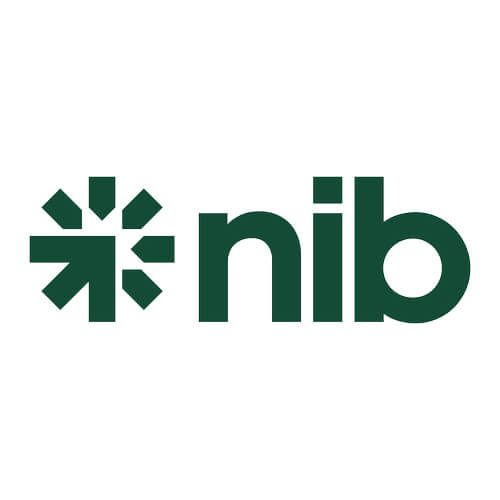The One Thing the Public Health System Can’t Cover: Your Family’s Future
You don’t need to go private for a hip replacement in NZ. But if you passed away suddenly, who would help your family cover the mortgage next month?
New Zealanders take great pride in our public health system. It’s world-class in many ways. We know that if we’re injured on the job, ACC has our back. We trust that, if illness strikes, we’ll be looked after — whether we’re visiting the GP or undergoing major surgery.
But there’s one massive gap no public system can fill: what happens to your family’s financial future if you’re no longer around to support them?
This is where life insurance steps in — not as a luxury, but as a fundamental piece of the puzzle for Kiwi families. Especially if you’re a parent, a homeowner, or have loved ones who depend on your income, life insurance could be the quiet hero that helps keep their world turning if the unthinkable happens.
Let’s unpack what the public system covers, where it stops short, and why life insurance might be the most important safety net your whānau has never thought about.

What the Public Health System Does Cover
New Zealanders are lucky to have strong public health support in place. Here's a snapshot of what we can expect:
- Free or subsidised hospital care for illness, injury, and surgery
- ACC (Accident Compensation Corporation) support for treatment and loss of earnings from accidental injuries
- Pharmaceutical subsidies for most essential medications
- GP subsidies for children under 14 and community service cardholders
If you get into a car crash or slip on a wet floor at work, ACC will help with treatment costs and lost income — typically up to 80% of your weekly wage.
If you're diagnosed with cancer or need major surgery, the public health system will likely get you the care you need, even if there’s a waitlist.
But here’s the uncomfortable truth: none of these systems help your family if you die.
What Happens If You’re Not Here Anymore?
Imagine this scenario:
You’re in your early 40s. You and your partner just bought a home. You've got a couple of kids in school, and life is busy but good. Then, one day, something unexpected happens. A sudden illness. A fatal accident. A heart attack. And just like that — you're gone.
The public system may help cover the ambulance ride, the hospital costs, the coroner’s report. But the mortgage, groceries, school fees, utility bills? Those don’t stop.
Your partner is left not only grieving, but scrambling to keep your family financially afloat.
There is no government benefit designed to replace a full-time income long-term. Superannuation is only available at retirement age. ACC won’t apply unless the death was accidental — and even then, it’s a temporary buffer, not a solution.
Why Life Insurance Is the Missing Piece
This is why life insurance isn’t about you — it’s about your family.
With a life insurance policy, your loved ones receive a tax-free lump sum if you pass away. That pay-out can help:
- Pay off the mortgage
- Cover ongoing living expenses
- Keep the kids in school or uni
- Buy time to grieve without rushing back to work
- Provide long-term financial stability
As DormFIN puts it on our Life Insurance page, it’s about ensuring “your family’s financial well-being is maintained,” even if you're no longer there to provide.
Whether you’re a young couple with your first home or a growing family trying to secure the future,
life insurance offers peace of mind that your household won’t collapse under financial pressure if tragedy strikes.
Real Kiwi Scenarios Where Life Insurance Matters
1. The Young Family
Anna and Tama, both in their early 30s, have two kids and a mortgage in Rotorua. If Tama passed away, Anna would need to find full-time childcare, manage the bills, and cover the mortgage — all on a single income.
Life insurance would give her breathing space and security while adjusting to life without her partner.
2. The Sole Earner
Josh works full-time while his partner, Marisa, stays home with their newborn. If Josh were suddenly gone, his income would vanish overnight.
Life insurance would provide a financial cushion so Marisa could stay home with their child, rather than being forced back into work prematurely.
3. The Self-Employed Couple
Running a small tradie business together, Sam and his wife have irregular income. If one of them died, the other might not be able to sustain the business solo.
With a tailored policy, life insurance could fund business continuity or help settle debts, ensuring financial strain doesn't follow grief.
Why Use a Broker Like DormFIN Instead of a Bank?
You could get a basic policy through your bank — but that’s often a one-size-fits-all deal.
With a specialist insurance broker like DormFIN, you get:
- Personalised advice based on your lifestyle, budget, and family needs
- Access to a wide range of insurers, rather than being locked into one provider
- Support during claims, when emotions are high and paperwork is the last thing on your mind
DormFIN prides itself on being a trusted, empathetic guide through the insurance process. Whether you’re having a cuppa in a café or chatting online, their approach is flexible, understanding, and deeply human.
How Much Life Insurance Do You Really Need?
A good rule of thumb is to cover 10 to 15 times your annual income, but your needs will vary depending on:
- Mortgage balance
- Number of dependents
- Lifestyle costs
- Debts and liabilities
- Long-term goals (e.g., kids’ education)
The right amount is whatever helps your family maintain their standard of living. A broker can walk you through this — no guesswork required.
Common Myths (and Real Talk)
“I’m young and healthy — I don’t need it yet.”
Actually, the younger and healthier you are, the cheaper life insurance is. Waiting until health issues pop up can make it expensive — or even impossible — to get cover.
“I’ve already got cover through work.”
Employer policies often offer limited coverage and don’t transfer if you change jobs. They’re a nice bonus, but shouldn’t be your sole safety net.
“Life insurance is too expensive.”
For most people, basic life cover costs less than a daily coffee. It's a small price to pay for peace of mind.

Your Family Deserves a Future Without Financial Uncertainty
We don’t like to think about death — especially our own. But planning for the worst is one of the most loving things you can do.
You wouldn’t leave the front door unlocked at night. You wouldn’t drive without a seatbelt. Life insurance is the same kind of protection — only it guards your family’s financial future.
Our public health system is excellent. But it can’t pay your mortgage. It can’t fund your child's education. It can’t replace your income.
Life insurance fills that gap.
Ready to get started or have questions about what cover looks like for your family? Reach out to the friendly team at DormFIN — they’ll meet you wherever you’re at, whether it’s your kitchen table or a local café.
Because protecting your loved ones shouldn't be scary. It should be simple, reassuring, and personal.









